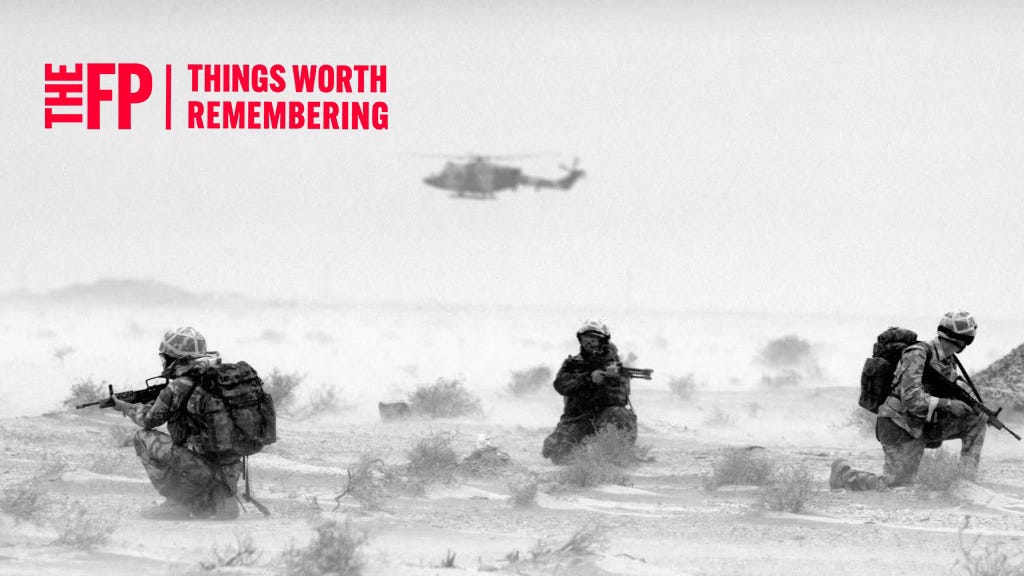Things Worth Remembering: How Warriors Prepare It’s true that training for a war in peacetime is like learning to swim on dry land. But that’s why American soldiers are expected to read books like this.
“I was aware that the price of learning on the job in combat is often paid in blood,”writes H.R. McMaster. (Ian Jones via Getty Images)
Welcome to “Things Worth Remembering,” in which writers share a poem or a paragraph that all of us should commit to heart. This week, H.R. McMaster—decorated veteran, former national security adviser, and friend of The Free Press—writes about how he prepared to lead soldiers into battle by reading a lot of books. There was one in particular that shaped him. When he was named commander in chief of the Continental Army, George Washington protested that he wasn’t ready. “I feel great distress from a consciousness that my abilities and military experience may not be equal to . . . the command I am honored with,” he stated, 250 years ago. Nevertheless, he accepted that grave responsibility. Washington had been a lieutenant colonel in the Virginia militia during the French and Indian War, but he had had no formal military education. He had prepared for high command through self-study. He scrutinized maps of past campaigns. He read classical history, military biographies, and accounts of colonial and European warfare. It was this that equipped him to lead American and French forces—with determination, wisdom, and compassion for his troops—to victory, in a war against the world’s most powerful military. Thanks in large measure to Washington’s example, the U.S. Army still has a strong tradition of valuing the deep and private study of past battles. Long before I took the oath of service on The Plain of the United States Military Academy at West Point in 1980, I was the son of a teacher growing up in Philadelphia devouring military biographies and books about American battles. Yet it was my impending responsibilities as an officer that led me to study more purposefully, knowing that the seriousness with which I studied might save lives. I was aware that the price of learning on the job in combat is often paid in blood...
Become a paid subscriber Get access to our comments section, special columns like TGIF and Things Worth Remembering, tickets in advance to our live events, and more. UPGRADE TODAY |


